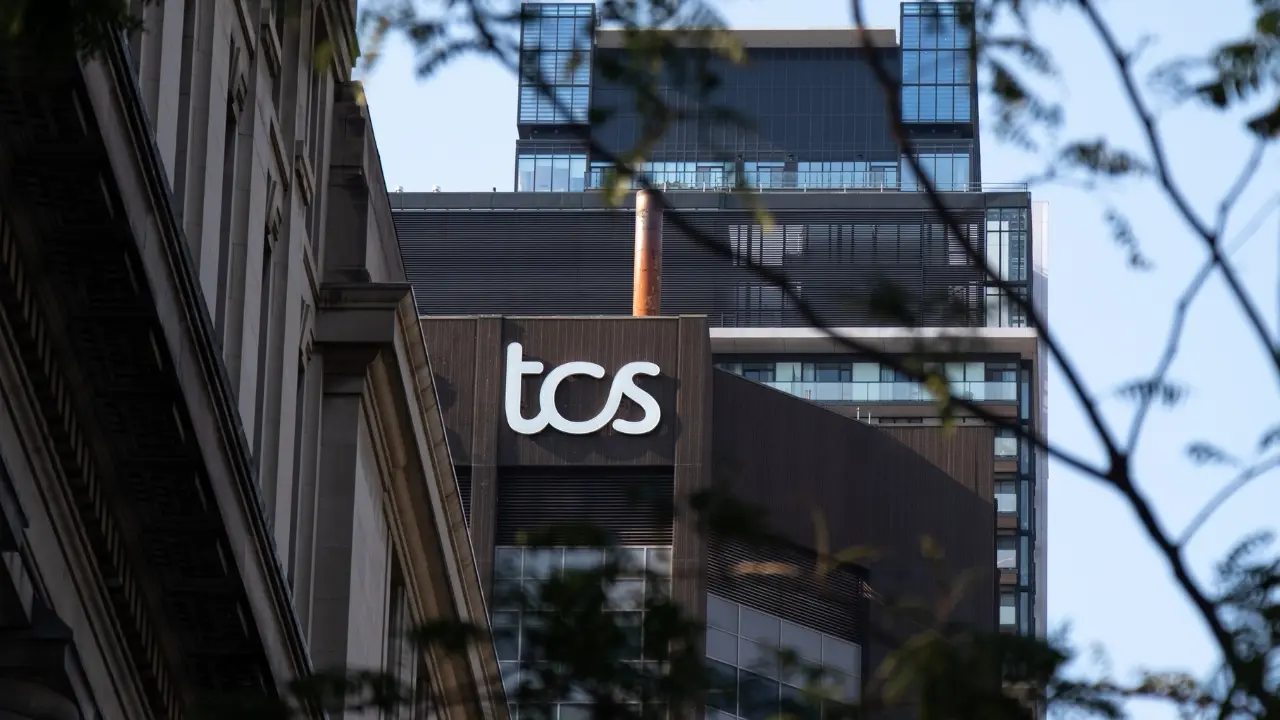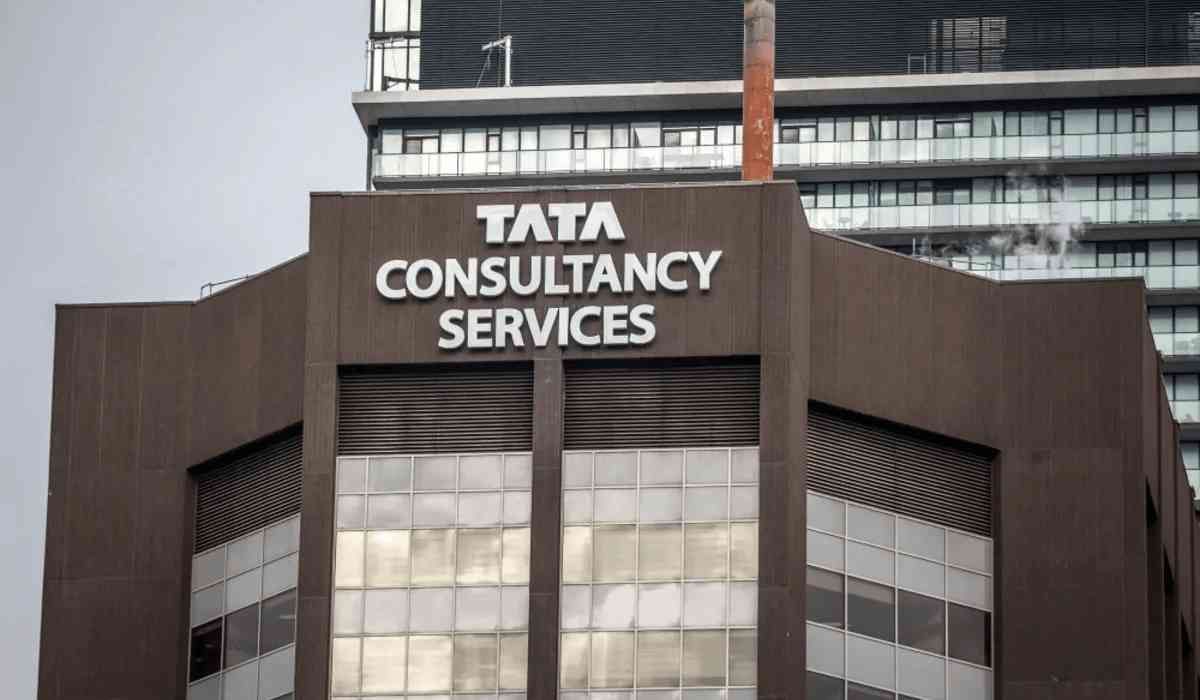India’s largest IT services company, Tata Consultancy Services (TCS), is undergoing its biggest-ever workforce restructuring—a move that has sent shockwaves across the IT industry and rattled investor sentiment. Over the course of FY26, TCS will lay off 12,000 employees globally, roughly 2% of its 6.1 lakh-strong workforce.
Despite widespread assumptions, the tech giant has made it clear: this sweeping job cut is not being driven by artificial intelligence (AI). Instead, it's rooted in skill mismatches, changes in the company’s workforce deployment strategy, and an aggressive push to become a “future-ready organisation.”

Why is TCS Laying Off 12,000 Employees?
Contrary to popular belief, AI automation is not the main reason behind the layoffs.
In multiple interviews and internal communications, TCS CEO K. Krithivasan reiterated that the layoffs stem from inability to deploy employees effectively rather than AI-led productivity gains.
“This is not because of AI delivering 20% productivity gains. We are not doing this due to automation,” Krithivasan emphasized. “This is driven by where there is a skill mismatch, or where we think we have not been able to deploy someone.”
The restructuring will predominantly affect mid-level to senior-level professionals, especially those who have remained on the bench for extended periods. While reskilling programs have been actively rolled out across the company, many senior professionals have struggled to transition into tech-heavy or agile roles—prompting difficult but necessary decisions.
Transitioning from Legacy to Agile: The Changing Work Model
TCS is evolving from traditional project management frameworks like “waterfall models” to more agile, product-centric approaches. This shift demands fewer leadership layers and more cross-functional technical expertise, leading to a reduced need for roles such as conventional project or program managers.
Krithivasan explained:
“Earlier, in waterfall models, we had multiple leadership layers. That’s changing.”
With the company moving toward next-gen infrastructure, AI deployment at scale, and deeper strategic partnerships, realigning the workforce has become imperative. However, this transition isn't just about trimming headcount—it's about building a lean, adaptable, and tech-savvy organisation prepared for the future.

Market Reaction: TCS Share Price Slides
The announcement of the job cuts led to an immediate dip in investor confidence. On the National Stock Exchange (NSE), TCS shares fell by 1.7%, opening at Rs 3,110.00 and dropping to as low as Rs 3,081.60, settling around Rs 3,091.10.
The Bombay Stock Exchange (BSE) showed a similar pattern, with shares opening at Rs 3,113.00 and falling to Rs 3,081.20, eventually hovering near Rs 3,092.80. The broader Nifty IT Index also dipped by 1%, with TCS, Infosys, Wipro, HCL Tech, and Tech Mahindra among the laggards.
Global brokerage firm Citi maintained its “sell” rating on TCS, citing concerns over margin pressure, weak demand, skill mismatches, and increasing productivity expectations. The target price was set at Rs 3,135.
Impacted Employees: What Support Will TCS Provide?
TCS has pledged to handle the layoffs gradually and with compassion. Affected employees will be identified through a structured internal process, with redeployment opportunities explored first. Only when no internal match is found will the layoffs proceed.
Here's what TCS is offering to those impacted:
-
Notice-period compensation
-
Additional severance packages
-
Extended health and life insurance coverage
-
Mental health and career counselling
-
Outplacement assistance to find new roles in the industry
Krithivasan assured that layoffs would not be abrupt:
“We won’t do it in a hurry. We will talk to the people who could be impacted. We will provide them an opportunity. When we are not able to, then we will do what we need to do.”

Reskilling Efforts and Internal Policy Reforms
As part of its broader workforce transformation strategy, TCS has been actively investing in upskilling initiatives. The company claims to have trained over:
-
5.5 lakh employees in basic AI concepts
-
1 lakh professionals in advanced AI and tech skills
Despite these efforts, redeployment hasn’t always been feasible—especially for senior professionals. In parallel, TCS has revised its internal HR policies, now mandating:
-
At least 225 billable days per year
-
Capping bench time to 35 days annually
These stricter deployment guidelines have further compounded the redeployment challenges for some employees.
TCS’s Broader Vision: Becoming a "Future-Ready Organisation"
The job cuts are not isolated; they are part of TCS’s strategic transformation, which includes:
-
Expanding into new markets
-
Deploying AI at scale for internal and client-facing solutions
-
Deepening global partnerships
-
Building next-generation IT infrastructure
-
Realigning the workforce model
The company has assured stakeholders and employees that hiring will continue, particularly in new-age technologies where demand remains high. The goal is not to downsize but to restructure for resilience and competitiveness in a volatile market.

Industry Implications: A Glimpse of What’s Ahead
The TCS layoffs may be a canary in the coal mine for India’s broader IT sector, which is already facing:
-
Hiring freezes
-
Pushbacks on internal policy changes
-
Delays in onboarding lateral hires
-
Margin pressures from clients demanding 20-30% cost reductions
Other Tata Group companies like Tata Steel and Tata Motors have also implemented periodic job cuts in recent years to remain lean and profitable.
According to Phil Fersht, CEO of HfS Research:
“The impact of AI is eating into the people-heavy services model and forcing large providers to rebalance their workforces to maintain margins and stay price competitive.”
Layoffs Driven by Strategy, Not Panic
The planned job cuts at TCS reflect a strategic workforce transformation rather than short-term cost-cutting. While painful for those affected, the company’s move signals a broader industry evolution—one where legacy roles give way to agile, tech-centric positions, and upskilling alone may not guarantee employability.
In Krithivasan’s words:
“This is not a question of demand. It is about us being future-ready.”
As TCS prepares for the future, the IT industry—and its workforce—must brace for a new era where adaptability and continuous learning are no longer optional, but essential.
With inputs from agencies
Image Source: Multiple agencies
© Copyright 2025. All Rights Reserved Powered by Vygr Media.























